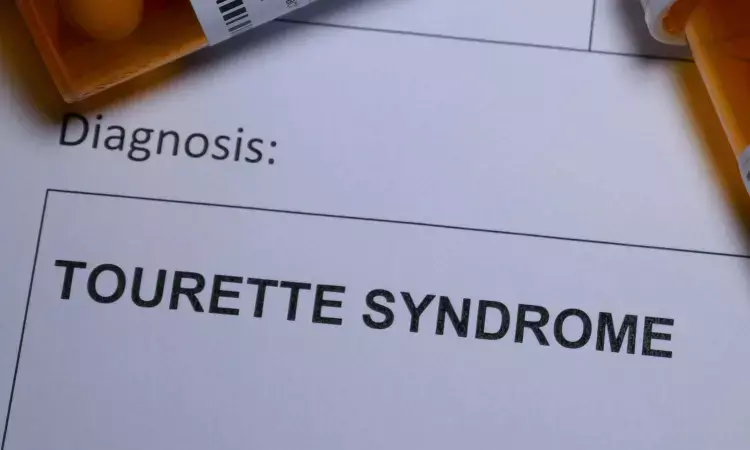- Home
- Medical news & Guidelines
- Anesthesiology
- Cardiology and CTVS
- Critical Care
- Dentistry
- Dermatology
- Diabetes and Endocrinology
- ENT
- Gastroenterology
- Medicine
- Nephrology
- Neurology
- Obstretics-Gynaecology
- Oncology
- Ophthalmology
- Orthopaedics
- Pediatrics-Neonatology
- Psychiatry
- Pulmonology
- Radiology
- Surgery
- Urology
- Laboratory Medicine
- Diet
- Nursing
- Paramedical
- Physiotherapy
- Health news
- Fact Check
- Bone Health Fact Check
- Brain Health Fact Check
- Cancer Related Fact Check
- Child Care Fact Check
- Dental and oral health fact check
- Diabetes and metabolic health fact check
- Diet and Nutrition Fact Check
- Eye and ENT Care Fact Check
- Fitness fact check
- Gut health fact check
- Heart health fact check
- Kidney health fact check
- Medical education fact check
- Men's health fact check
- Respiratory fact check
- Skin and hair care fact check
- Vaccine and Immunization fact check
- Women's health fact check
- AYUSH
- State News
- Andaman and Nicobar Islands
- Andhra Pradesh
- Arunachal Pradesh
- Assam
- Bihar
- Chandigarh
- Chattisgarh
- Dadra and Nagar Haveli
- Daman and Diu
- Delhi
- Goa
- Gujarat
- Haryana
- Himachal Pradesh
- Jammu & Kashmir
- Jharkhand
- Karnataka
- Kerala
- Ladakh
- Lakshadweep
- Madhya Pradesh
- Maharashtra
- Manipur
- Meghalaya
- Mizoram
- Nagaland
- Odisha
- Puducherry
- Punjab
- Rajasthan
- Sikkim
- Tamil Nadu
- Telangana
- Tripura
- Uttar Pradesh
- Uttrakhand
- West Bengal
- Medical Education
- Industry
Ecopipam significantly reduces symptoms of Tourette syndrome among children

According to results of an open-label extension study presented at International Congress of Parkinson's Disease and Movement Disorder Society, Ecopipam significantly reduces motor and vocal tics related to Tourette syndrome among children.
An open-label extension study of 121 pediatric patients with Tourette syndrome evaluated the safety profile of the investigational drug ecopipam for up to 12-months of treatment.
No new safety concerns were identified based on an evaluation of adverse events, physical exams, vital signs, laboratory results and safety scales, according to Emalex Biosciences. A durable effect was also observed over the course of the study based on evaluation of the patients’ motor and vocal tics, which were assessed every three months.
The findings were first presented at the International Congress of Parkinson’s Disease and Movement Disorder Society in Copenhagen and will be highlighted at the Child Neurology Society Annual Meeting this week in Vancouver. Patients in the open-label study previously completed a Phase 2b clinical trial involving more than 150 children and adolescents that found ecopipam significantly reduced the total number of motor and vocal tics compared to placebo, according to a study published in the journal Pediatrics.
In this open-label study, ecopipam was generally well tolerated, with 33.1% (40/121) of patients reporting treatment-related adverse reactions (ARs). The most common ARs were anxiety (6.6%), insomnia (5.8%), and somnolence (5.8%). One patient experienced a serious adverse reaction (obsessive thoughts) and 11.6% (14/121) of patients discontinued the study due to adverse events.
In addition, patients did not have observable evidence of excessive weight gain or metabolic side effects commonly reported with antipsychotic agents, which are often used to treat patients with Tourette syndrome. Ecopipam is a first-in-class dopamine-1 receptor antagonist. The antipsychotic agents currently approved to treat Tourette syndrome target the dopamine-2 receptor.
Ecopipam is the lead candidate for Emalex Biosciences, a clinical-stage biopharmaceutical company founded by Paragon Biosciences. Emalex is currently conducting a Phase 3 clinical trial of ecopipam for the treatment of Tourette syndrome at more than 90 sites in North America and Europe.
Tourette syndrome is a chronic, childhood-onset neurodevelopmental disorder characterized by motor and vocal tics. The condition is associated with both increased mortality and significant morbidity. In the majority of individuals, Tourette syndrome substantially impacts day-to-day physical and social function.
“The fact that most patients who completed the Phase 2b study asked to participate in the open-label extension points to the unmet medical needs for people with Tourette syndrome. The 12-month data supports the continued development of ecopipam as a first-in-class novel therapy for children and adolescents with Tourette syndrome,” said Emalex Biosciences Chief Medical Officer Frederick Munschauer, MD.
About Ecopipam
Emalex’s first-in-class development candidate ecopipam, a novel investigational compound that is being studied as a potential treatment for certain central nervous system disorders, blocks the actions of the neurotransmitter dopamine at the D1 receptor. Dopamine is a neurotransmitter in the central nervous system, and its receptors have been classified into two “families” based on their genetic structure: “D1” (including subtypes D1 and D5) and “D2” (including subtypes D2, D3, and D4). D1 receptor super-sensitivity may be a mechanism for the repetitive and compulsive behaviors associated with Tourette syndrome. Currently approved therapies for the treatment of Tourette syndrome act at D2 receptors. Ecopipam has been shown to be generally well tolerated in clinical trials conducted to date and has received Orphan Drug and Fast Track designation from the FDA for the treatment of patients with Tourette syndrome. Adverse events affecting primarily the central nervous system have been reported in clinical trials conducted to date, including headache, fatigue, somnolence, insomnia, restlessness, anxiety, depression and rarely, suicidal ideation.
Dr Kamal Kant Kohli-MBBS, DTCD- a chest specialist with more than 30 years of practice and a flair for writing clinical articles, Dr Kamal Kant Kohli joined Medical Dialogues as a Chief Editor of Medical News. Besides writing articles, as an editor, he proofreads and verifies all the medical content published on Medical Dialogues including those coming from journals, studies,medical conferences,guidelines etc. Email: drkohli@medicaldialogues.in. Contact no. 011-43720751


